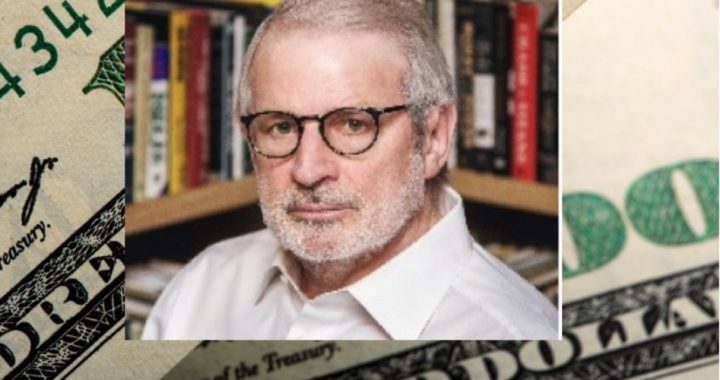
David Stockman (shown), former President Ronald Reagan’s director of his Office of Management and Budget from 1981 to 1985, told Greg Hunter of USAWatchdog that March 15, two days after President Trump presents his budget to Congress, will be a “hard stop” for the economy:
I think what most people are missing is this date: March 15, 2017. That’s the day that this debt ceiling holiday that Obama and Boehner put together … in October 2015 … expires. The debt ceiling will freeze in at $20 trillion. It will then be the law. It will be a hard stop.
The Treasury will have roughly $200 billion in cash. We are burning cash at a $75 billion a month rate. By summer, they will be out of cash. Then we will be in the mother of all debt ceiling crises.
Stockman told Hunter that he thinks the stock market is grossly overvalued, calling it “the greatest suckers’ rally of all time. It is based on pure hopium,” adding:
Donald Trump is in a trap. Today the debt is $20 trillion. It’s 106% of GDP.… Trump is inheriting a built-in deficit of $10 trillion over the next decade under current policies that are built in.
Yet, he wants more defense spending, not less. He wants drastic sweeping tax cuts for corporations and individuals. He wants to spend more money on border security and law enforcement. He’s going to do more for the veterans. He wants this big trillion dollar infrastructure program.
You put it all together and it’s madness.
Sober reality confirms that Stockman is correct, and likely understated if one listens to Boston University professor Laurence Kotlikoff, who calculates the nation’s indebtedness not at $20 trillion but at $200 trillion. Reality also confirms that at some time, as economist Herb Stein famously put it, “If something cannot go on forever, it will stop.”
The difficulty comes in trying to predict when. Since leaving the White House, Stockman has become a perma-bear, predicting all manner of economic disaster and making a living doing so at his website, David Stockman’s Contra Corner.
In a word, forecasting is difficult. As billionaire Howard Marks said, “There are no facts about the future, just opinions.” Albert Einstein commented, “I never think of the future — it comes soon enough,” while Warren Buffett opined: “Forecasts usually tell us more of the forecaster than of the future.”
Peter Bernstein, a highly regarded financial historian who died in 2009 at age 90, said that “forecasts create the mirage that the future is knowable,” while economist John Kenneth Galbraith wrote: “We have two classes of forecasters: those who don’t know, and those who don’t know that they don’t know.” Former General Electric executive Ian Wilson was skeptical as well: “No amount of sophistication is going to allay the fact that all of your knowledge is about the past and all your decisions are about the future.”
Stockman is not alone in trying to warn people about the coming (eventual) resolution of the intersection of debt and the country’s ability to service it. Harry Figgie, the entrepreneur who built a Fortune 500 company, once wrote of the coming collapse:
They are killing our country, and by now you know who I mean. You understand how serious our plight is and that we have very little time — a few months, a year at the most — to mobilize the citizens and the leaders of our country to take up the fight against deficit spending and the mounting debt that otherwise will destroy the United States as we know it.
And then Figgie made the fatal forecaster’s mistake; he said when it would happen:
Get it out of your mind that economic and political collapse can’t happen in this country, or that we can deal with it once it happens. It can and … will happen here unless we move to stop it now.
You can’t beat cancer once you’ve died, and by the mid-1990s, the United States as we know it will most likely be dead.
Dr. Stockman, the perma-bear, is both right, and wrong. Deficits do matter. But it’s highly likely that the Ides of March will come and go and no one will notice.
An Ivy League graduate and former investment advisor, Bob is a regular contributor to The New American magazine and blogs frequently at LightFromTheRight.com, primarily on economics and politics. He can be reached at [email protected].



